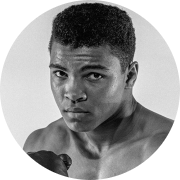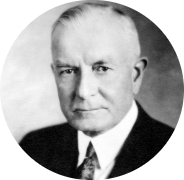How To Be A Better Friend
I made a list of friends, and I found out, I have made a lot by using what I am about to share with you. Sometimes, there is never a clear path on how to make friends work for all kinds of people, but, there is a ‘how to be a better friend’ model that works all the time. True friendship is a completely mutual relationship, but that is not always the case. Many are friends with people who are not their friends, but they have a seemingly good relationship until there is a crisis or an event that warrants sacrifices.
ALSO, READ How To Find Your Purpose Early In Life And Fulfil It
There are good people out there, and these people make true and loyal friends. If you have a circle of friends that are not loyal, the first thing to do is check if you are loyal, if yes, change them, if no, change and be a better friend.

“Friendship is the hardest thing in the world to explain. It’s not something you learn in school. But if you haven’t learned the meaning of friendship, you really haven’t learned anything..”
— Muhammad Ali
In this article, I will be sharing 10 ways to be a better friend and how to achieve it. After reading this piece you will understand the dynamics of being a better person to the next person around you.
How To Become A Better Friend
Follow these 10 steps on how to be a better friend and see positive changes in your life and circle.
1. Love Yourself
Every time I tell people this, they almost immediately shout back at me, “I want to learn how to be a better friend for others, not to love myself.”
But that is a prerequisite. You can only give what you have. You cannot be a good friend to your friends if you’re not a good friend to yourself. This is because you will always project your perception of yourself onto others. For instance, if you do not love yourself because you think you are boring, you keep expecting people to think you are boring whenever you are around them.
So you will begin to do things you would not naturally do to convince them you are not boring. Even though they don’t think that about you. With time they will notice this and begin to get displeased with you. On the other end, you can also just cave in and “keep being boring.” Either way, your dissatisfaction with yourself will be transferred to every friend you try to keep and they’ll be dissatisfied with you.
So the first step to being a better friend is to accept who you are— not reject change or improvement— but love yourself while you change and get better. Everybody wants to hang out with someone who is confident and feels good about themselves.

“.Don’t make friends who are comfortable to be with. Make friends who will force you to lever yourself up”
— Thomas J. Watson
2. Choose the Right Friends
Before you go too far fussing about the fact that you are a bad friend, you must understand that you can’t be a good friend to every single person. So the foundation must be in place.
The quality of every friendship is dependent on the quality of the individuals in it. This does not mean that some people are bad and others are good. We are all equal, except that some people are better for each other than others. There are three major qualities of people who will make good friends
- Similarities in Interest
It is easier to be a better friend to someone when you both have similar interests. They will enjoy themselves while you’re talking about or doing something you enjoy.
It is unlike what you get with a friend with whom you do not have common interests. You have to continue to sacrifice your space and natural inclinations to get involved in their lives.
- Compatible Personality
Compatibility talks about your ability to get along with each other. A good friend for you is someone you don’t have to keep fighting with. While disagreements are inevitable in every friendship, everybody has more fun when disagreement is not the bulk of what happens when you guys meet. You might have a tough time as an extra extrovert who loves noise if your best friend loves to stay calm and indoors.
Of course, it can work, but it’ll take more intentionality and effort.
- Similar Value Systems
In choosing the right friends, even greater than compatibility is a similarity in your value systems. Your value systems are the ideologies and convictions you hold about life and which will live by. This is very evident among students. A student who prioritizes his academics above everything will be a bad friend to someone who hates school.

“Each friend represents a world in us, a world possibly not born until they arrive, and it is only by this meeting that a new world is born.”
— Anais Nin
Friendships develop when both parties spend time doing things together. However, people with conflicting value systems will rarely have things to do that the other person will be interested in. You and your friend must not have all your interests the same. You may not have exactly matching personalities, and your value systems may be different in some areas. But there must be a meeting point or several meeting points, enough to make the friendship enjoyable for both parties.
3. Be A Contributor
Friendships are relationships of mutual benefits. To be a better friend you must be intentional about being a contributor to the life of the other person You must be on the look to identify their needs and find ways to meet them.
I have just told you about choosing a friend whose interests are your interests, but no matter how similar your interests and personalities are, there must be differences.
You don’t run away from those parts of your friends. Instead, you should be open to making adjustments to satisfy those areas of your friends’ life that are not your natural inclination. This calls for sacrifices. Being a contributor also entails being emotionally present for them when they are going through tough situations and being financially present as much as you can when they have financial needs.

““Find a group of people who challenge and inspire you; spend a lot of time with them, and it will change your life.”
— Amy Poehlerr
4. Do Not Lose Yourself
This is the other extreme of being a contributor and making sacrifices for the sake of your friendship. You can assume the role of a contributor so much that you forget that you should also receive. It is only friendship when there are mutual benefits.
If only one person is benefiting from the friendship, it has become parasitic. You lose yourself in a friendship when you are not gaining any satisfaction from the sacrifices you are making for them.
Here are two instances. Max loves to watch football matches but his friend Tim doesn’t. Tim loves to see movies instead.
From time to time Tim goes with Max to watch football matches and Mark goes to the movies with Tim. They are both sacrificing their preferences for the sake of friendship and this is healthy. Then there’s also Susie and Carly who are in the same situation. But this time, Carly doesn’t get to go to the movies because she has to keep up with Susie’s football matches.
Whenever she sees a movie, she does it secretly or when there are no matches. She believes she needs to satisfy her friend by going with her to every match but she’s losing herself in the process.
You should make sacrifices for friends but you shouldn’t be a sacrifice. You must remain in touch with your desires and preferences as well.
5. Allow Your Friends to Have Their Space
You shouldn’t be a parasite. A healthy friendship has both time for coming together and time for being alone. To become a better friend you must understand that things cannot always go your way and you won’t always have your needs met. You can unconsciously become the Susie among your friends who drags everybody to do things she wants.

“Growing apart doesn’t change the fact that for a long time we grew side by side; our roots will always be tangled. I’m glad for that..”
— Ally Condie
If you do this you are denying them the pleasure of self-expression in the relationship. When you do not allow people to express themselves and their desires the way they want, they begin to see your presence as a threat to their peace and you’ll be a bad friend.
But not only does not giving people their space affect them. It also affects you by extension. You are deprived of the dynamism and variety that you should enjoy when you allow them to express themselves. The moment you open your heart and begin to admire the differences between your friends you will discover that there are other fascinating things in life than all you’re used to.
People’s differences are not a defect. They are a blessing if you learn to appreciate them and allow them to express them.
6. Don’t Pileup Offences
Offences are the byproduct of relationships. The only way to not get offended is to not talk to anyone. But the day you signed up to have friends was the day you signed up to be offended. Now, the fact that someone offended you doesn’t mean they are a bad person. You get offended when someone does something you do not like, not necessarily when they do something bad.
So it is your job to help them know what you don’t like and ask them to redress. You become a bad friend when you keep counting and holding onto everything they do that you don’t like instead of telling them. There are very few people who intentionally do things to offend their friends. When you find such people, you might want to ease them out of their lives.

“In the sweetness of friendship let there be laughter, for in the dew of little things the heart finds its morning and is refreshed..”
— Khalil Gibran
But for normal friends, you should give room for their weaknesses and understand that they won’t always be perfect. As long as their heart is right, even when their acts aren’t right, you should forgive them and talk about it.
7. Share Your Life
You will be a better friend when you’re interested and share in the lives of your friends. Now, several meeting points can bring friends together but you should go beyond that point into other areas of their life.
For example, if you got to know each other at the office and your friendship developed around work and goals, you should gradually go beyond that and show concern for or interest in other areas of their life. Be concerned about the welfare of their family, their health, their spirituality, and other areas.
ALSO, READ How To Overcome Fear: 9 Simple Steps (100% Working)
The world needs support systems and every time you present yourself as someone willing to be a support system for another person, you’ll be a good friend to them. If you are just getting to know each other, you might want to take it slowly and only enter into other areas of their lives as you trust each other more and as you get more comfortable around each other. But sharing your life has to be a two-way thing. You should also make them know they are welcome into other areas of your life aside from your primary meeting point.
Share your successes and failures, triumphs and challenges together.
8. Actively Create Memories
The most exciting friendships are the ones with the most memories. But you don’t have to wait for memories to come with time. Instead, you should be actively involved in creating the memories. Initiate adventures, go to places that you both will enjoy, and initiate games and fun. Be a creative friend.
One way to create memories that will last is to ask what exciting stuff your friends haven’t done before and organize one.
For instance, if one of you has never gone to the beach or a particular restaurant, you can set out a day to go there. Learning stuff together is another way of creating memories.
9. Be An Active Listener
A major part of what happens in friendship is communication. Not only will being an active listener make you a better friend. It will help you make more friends if that’s something you find difficult.
Here is why it works: we all as humans love to tell our stories. We love to share our experiences if we find someone who will listen.

“For beautiful eyes, look for the good in others; for beautiful lips, speak only words of kindness; and for poise, walk with the knowledge that you are never alonet.”
— Audrey Hepburn
Unfortunately, only a few people care to listen because everybody loves to tell their own stories. So when friends are talking, it is very common to see the other person cooking what they want to say instead of fully listening to what the friend is saying. and we all know this.
If you choose to be different and choose to listen actively and show complete interest and what your friends are saying, you will stand out. You will make them feel fascinated and they will want to spend more time with you. One way to show that you are truly listening is to ask relevant questions seeking to get the full picture of what your friend is saying.
You should listen to understand and know them better, not just reply.
10. Commit to Self-development
I talked about the fact that offence is a byproduct of relationships. But this happens in two ways. In the same way, your friends will offend you from time to time, you will also offend them. But as your friendship progresses, the frequency of offences should reduce.
This means you will do fewer things that they don’t like and you will get along with some of their behaviours that you don’t like. For this to happen, you must be committed to becoming a better version of yourself. You should develop your emotional intelligence, your communication skills, become more empathetic with them, and so on.
Becoming a better version of yourself also retains you as a valuable person in their life because they can come with you with issues and they’ll be sure that you can provide valuable help. Friendship should be progressive. If your friends are progressing and you aren’t, with time you will outgrow yourselves and the friendship will tear apart.

“My best friend is the one who brings out the best in me..”
— Henry Ford
Conclusion: How To Be A Better Friend
Even if you’re someone who doesn’t know how to make friends or you’ve received too many complaints for not being a good friend, you can always get better To be a better friend you must love yourself, be a contributor to the friendship, forgive offences, share your life, create memories, be an active listener, and keep developing yourself.
FAQ
Yes, everyone can change, as long they are willing to do so. Follow the steps above to improve your relationship and friendship.
1. Be honest with yourself and analyse your flaws
2. Be honest with them and tell them their flaws
3. Discard them when you see they justify their flaws
4. Close every access to you and your life for your safety
5. Appreciate the reals ones and stick with them
